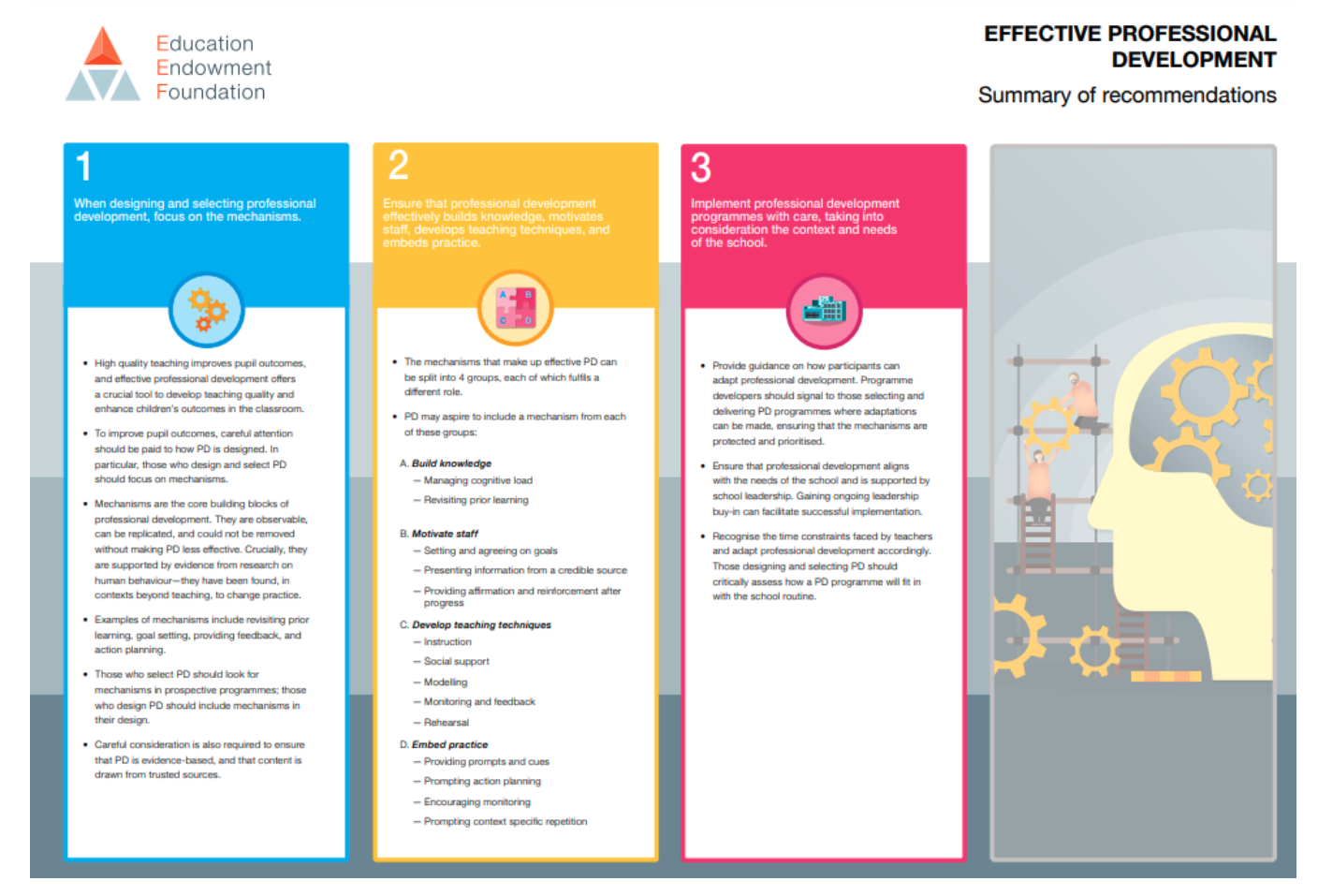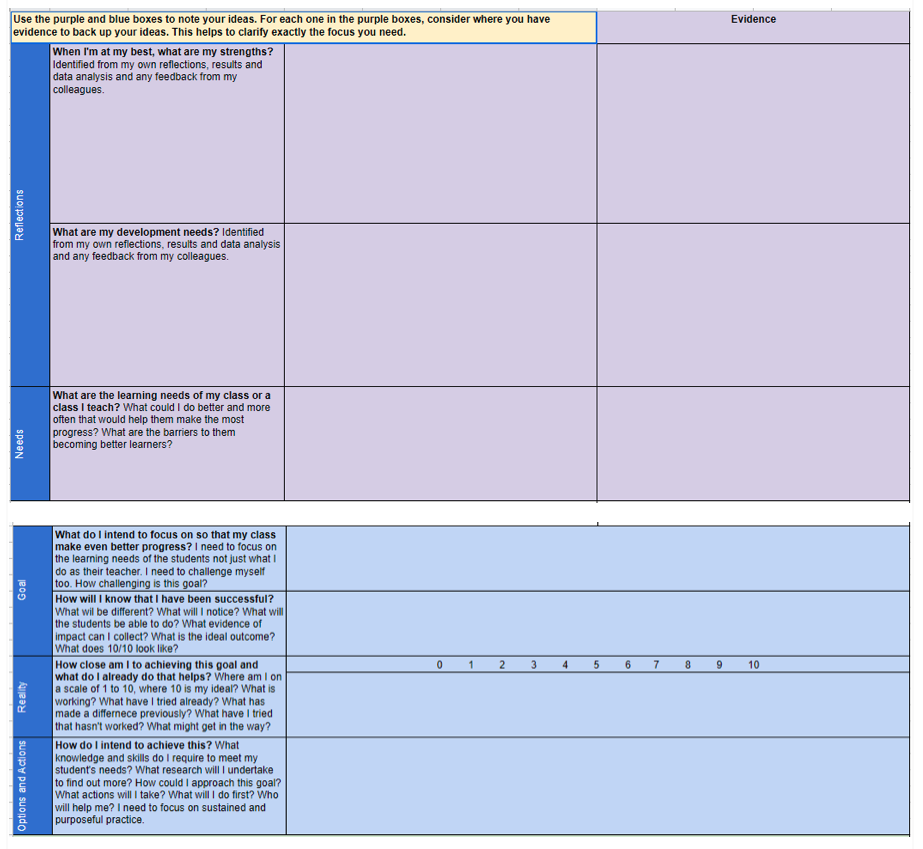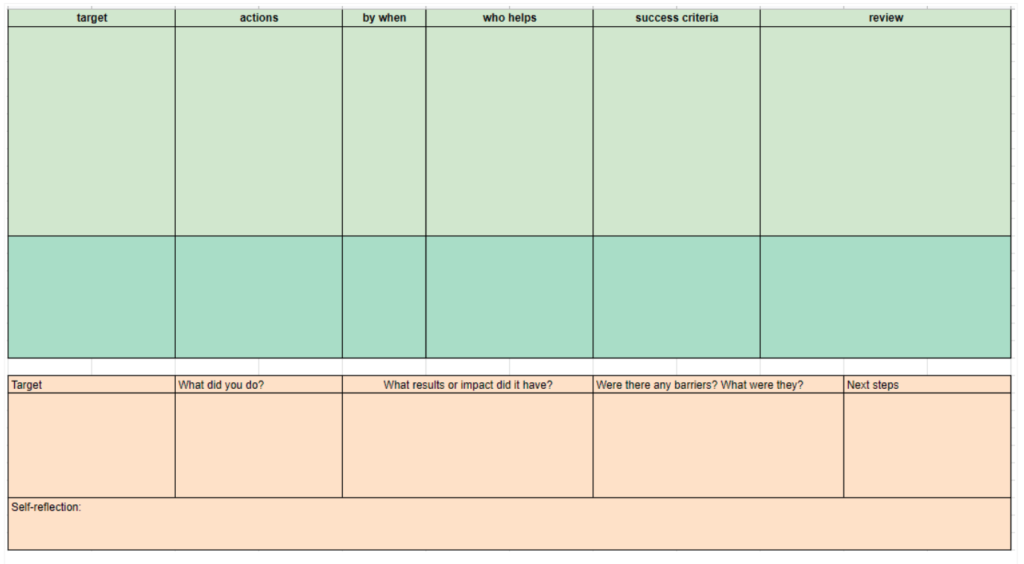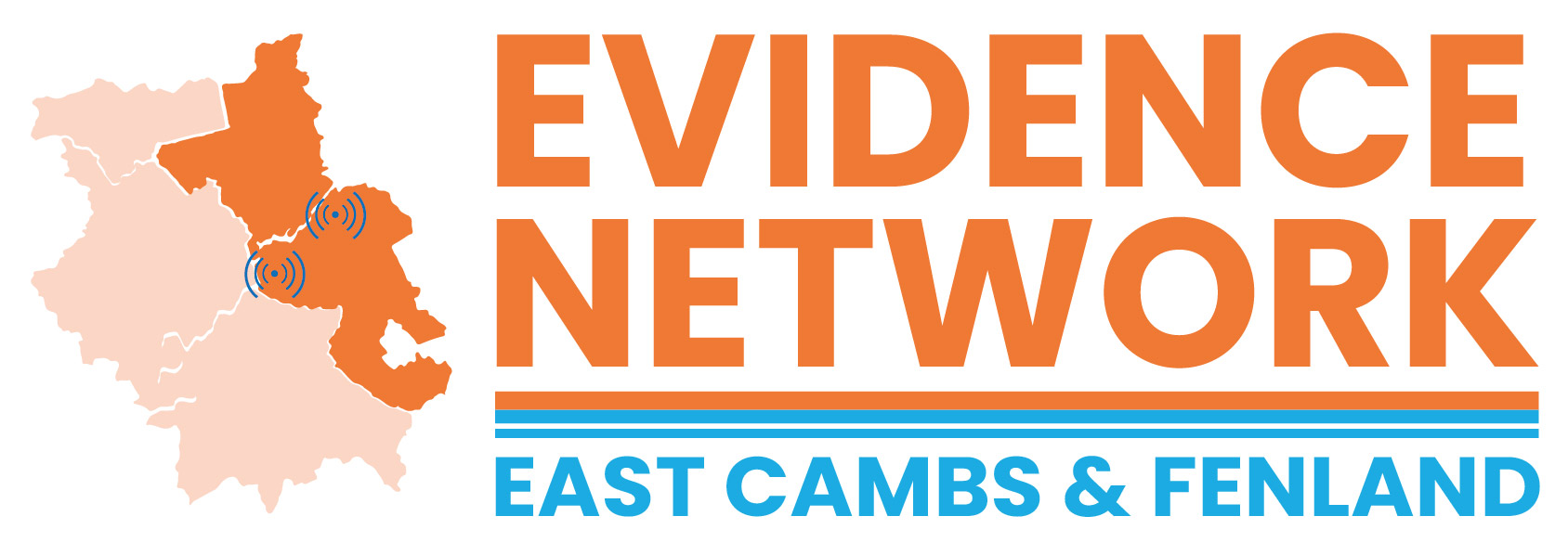by Elaine Crane, Evidence Advocate, Feb 2023
Primary school headteacher, Elaine Crane explains how taking a fresh look at appraisal mechanisms increased teacher engagement with professional development.

Blog
The EEF guidance report, Effective Professional Development notes that professional development should align with the needs of the school, achieve buy-in from staff and recognise time constrains faced by busy teachers. PD leads should also focus on mechanisms that build knowledge, motivate teachers, develop teaching techniques and embed practice.
How did our mechanisms align to the recommendations?
The leadership team at Alderman Jacobs School recognised that while many recommended mechanisms were in place, teachers reported lack of time to embed professional development, affecting motivation to engage fully in PD outside of weekly staff training sessions.
I set about exploring PD within the organisation, using surveys and interviews underpinned by Thomas Guskey’s work on PD and teacher change, which indicates that any advances made by teachers’ engagement and learning during a PD session can easily become undone if not supported afterwards. Guskey states that ‘change occurs mainly after implementation takes place and there is evidence of improved student learning, (therefore) continued follow-up support, and pressure following the initial training… is even more crucial.’ (Guskey, 2002, p. 388); our enthusiastic and talented team needed more support from systems organisation to make the most of their PD opportunities.
So how can successful implementation be supported by the organisation?
Our work centred on improving organisational support for implementation and change. We identified that our appraisal mechanisms could be better designed to support PD at individual level, and that time invested in the appraisal process could be used more efficiently. We also wanted to more formally recognise and share successes. The traditional appraisal mechanism focuses on targets derived from school improvement needs, with pupil attainment data as a key lever for evaluation – there is no focus on building individual or organisational knowledge or improving teacher skills: we decided to change the motivations behind appraisal to these key drivers.
Growth plans – an appraisal shift
Appraisal now centres on engagement with PD. Teachers evaluate their strengths and areas for development in relation to the teacher standards and career stage expectations; they consider school improvement targets and the needs of pupils in their class. This enables them to form an area of focus for their personalised PD growth plan.


Teachers are supported to identify a question, target group, research-based intervention or strategy, and baseline data so they can gauge impact on pupil learning. Crucially the target pupil group is small and the quality of the plan is not gauged by increase in pupil achievement only – an intervention may not yield the results we seek but engagement in the process of research is the key indicator of teacher success. There is advice about the types of data to gather and teachers can choose to involve peers in their learning journey. We are a 3 form entry school and teams shared their plans willingly, some tying theirs together by exploring different strategies within the same focus area, such as provision for early writing in the outdoor environment.
Impact
Three years after growth plans began, 90% of teachers consider they are engaged in their own PD and 100% say they feel completely trusted to take risks in their learning. Whole school strategies have developed from growth plans such as helicopter stories in EYFS and dual coding. Our October professional day and sessions throughout the year are routinely given to work on growth plans and individual PD, as a sign of the value we place on this vital component of school improvement. Most importantly, teachers cite collegiality resulting from this change as a key motivational feature of PD in our school.
References and reading:
Chartered Institute of Personnel and Development. (2016, December 16). Could do better? What works in performance management. Retrieved from: https://www.cipd.co.uk/knowledge/fundamentals/people/performance/what-works-in-performance-management-report
Guskey, T. (2002). Professional development and teacher change. Teachers and Teaching, 8(3), 381–391.
Guskey, T. R. (2016). Gauge impact with 5 levels of data. Journal of Staff Development, 37(1), 32–37.
Robinson, V. M., Lai, M. K., & Lai, M. K. (2006). Practitioner research for educators : a guide to improving classrooms and schools. Corwin Press.
Ryan, R. M., & Deci, E. L. (2017). Self-determination theory: basic psychological needs in motivation, development, and wellness. Guilford Press.
Teacher Development Trust. Evidence about Teaching and CPD [Blog]. Retrieved from: https://tdtrust.org/research-2/


Comments are closed